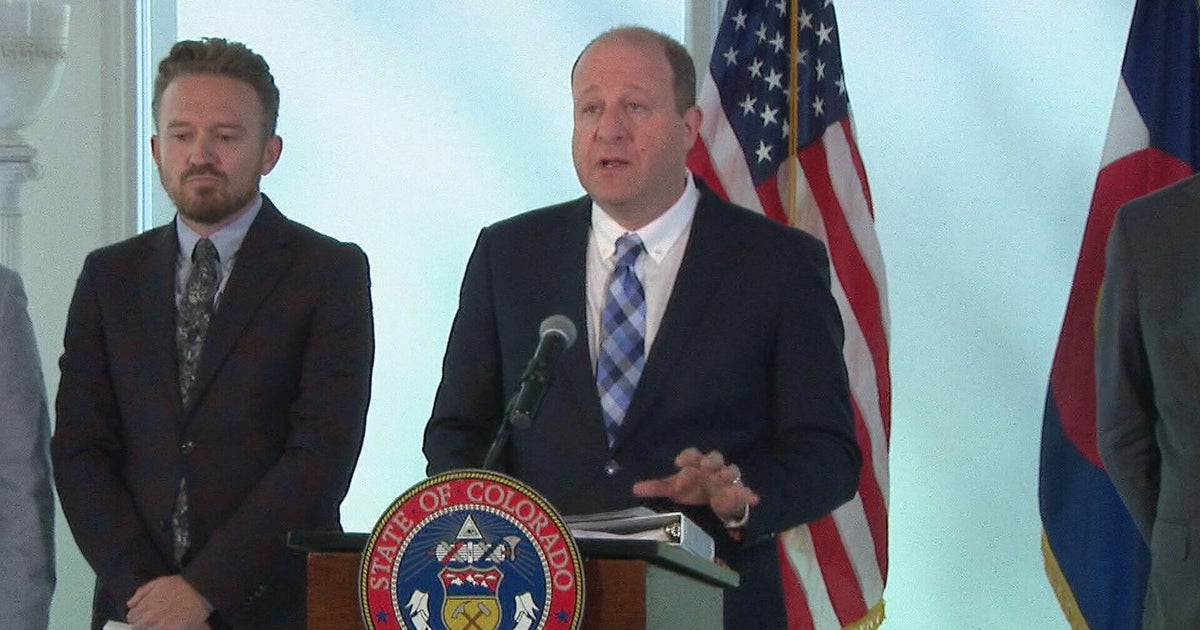Instructions

Economic Tensions Rise: Tariffs Spark Debate Between Colorado Governor and White House
Colorado Governor Jared Polis has raised concerns about the financial burden facing state residents, directly linking their increased expenses to President Donald Trump's controversial tariff policies. While local consumers feel the pinch of higher prices, the White House stands firm in its defense, arguing that these trade measures are strategically designed to revitalize American manufacturing and stimulate economic growth.
The ongoing tariff debate highlights the complex economic trade-offs between protecting domestic industries and maintaining affordable consumer prices. Governor Polis emphasizes the immediate impact on Colorado families, while the Trump administration maintains that short-term challenges will yield long-term economic benefits through job creation and industrial resurgence.
Economic Crossroads: Tariffs, Trade, and the Battle for American Manufacturing
In the complex landscape of international trade and economic policy, the United States finds itself at a critical juncture where political decisions intersect with economic realities. The ongoing debate surrounding tariff policies has sparked intense discussions about the potential long-term impacts on local economies, job markets, and national competitiveness.
Unraveling the Economic Consequences of Trade Protectionism
The Tariff Tug-of-War: Political Strategies and Economic Implications
The implementation of tariff policies represents a multifaceted approach to economic governance that extends far beyond simple trade regulations. Policymakers like Governor Jared Polis have raised significant concerns about the immediate economic consequences for everyday citizens. These tariffs, initially designed to protect domestic industries, create a complex web of economic challenges that ripple through local and state economies.
The intricate relationship between trade policies and economic outcomes reveals a nuanced landscape where theoretical economic strategies clash with practical financial realities. Manufacturers, consumers, and state governments find themselves navigating an increasingly complicated economic terrain, where each policy decision carries profound implications for economic stability and growth.
Manufacturing Renaissance or Economic Illusion?
The White House's assertion that tariffs will catalyze a manufacturing renaissance represents a bold economic strategy with potentially transformative implications. Proponents argue that protective trade measures can reinvigorate domestic industrial sectors, creating sustainable job opportunities and reducing dependence on international supply chains.
However, the practical implementation of such policies reveals significant challenges. Local economies like Colorado's face immediate financial pressures, with consumers experiencing increased costs and businesses confronting complex regulatory environments. The delicate balance between protecting domestic industries and maintaining economic competitiveness requires sophisticated, nuanced policy approaches.
State-Level Economic Perspectives: Colorado's Unique Challenge
Colorado's economic landscape provides a compelling case study in the complex dynamics of national trade policies. Governor Polis's vocal critique highlights the tangible economic pressures faced by state-level governments when navigating federal trade strategies.
The state's diverse economic ecosystem, ranging from technology sectors to traditional manufacturing, creates a unique environment where federal trade policies have immediate and far-reaching consequences. Local businesses must adapt to rapidly changing economic conditions, balancing increased production costs with maintaining competitive market positions.
The Human Cost of Economic Policies
Behind the abstract economic discussions lie real human experiences. Families across Colorado and other states directly experience the economic ramifications of trade policies through increased consumer prices, potential job market shifts, and overall economic uncertainty.
The psychological impact of these economic transformations cannot be understated. Workers in potentially affected industries face significant personal and professional challenges, requiring adaptability and resilience in an increasingly complex economic landscape.
Global Economic Interconnectedness and Future Strategies
Modern economic realities demand sophisticated, forward-thinking approaches to international trade. The ongoing debate surrounding tariffs represents more than a simple policy discussion—it reflects broader questions about national economic strategy, global competitiveness, and sustainable economic development.
Successful economic policies must balance protective measures with innovative strategies that foster long-term growth, technological advancement, and workforce development. The future of economic policy lies not in rigid protectionism but in flexible, adaptive approaches that recognize the complex, interconnected nature of global markets.
